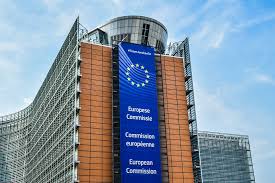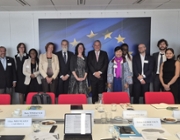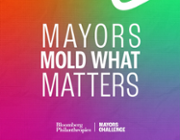Call for proposals: Local Authorities - Partnerships for sustainable cities 2020

17 February 2020
The European Commission has just launched a second call for proposals under its Partnerships for Sustainable Cities programme.
The objective is to promote integrated, urban development through partnerships built between local authorities of the EU Member States and of partner countries. It will focus on strengthening urban governance while, at the same time, ensuring social inclusiveness of cities; improving resilience and greening of cities; and improving prosperity and innovation in cities.
There are six lots under the new call for proposals:
The first four are geographic and invite proposals from cities in Sub-Saharan Africa; Asia and the Pacific; Latin America and the Caribbean; and the southern and eastern neighbourhood countries. These calls must be led either by a city in the designated region and have a European city co-applicant, or vice versa. Applicants must be cities (not LGAs or international local government associations). However there is scope for triangular cooperation with cities from selected countries, and to work with other affiliated entities. associated entities and contractors.
Lot 5 aims to support sustainable small cities and towns to take account of the fact that the scale of the last call worked against smaller communities. The maximum population size of the beneficiary city in this call is 300,000 and, for the European partner city, their population must not exceed 150,000.
Lot 6 is for partnerships for sustainable cities in fragile countries. Again, there is a list of eligible countries and none of them are in Commonwealth member states.
LGAs and international LGAs can lead or be co-applicants in Lots 5 and 6, reflecting the added needs of cities in those countries.
The specific objectives for the programme are to :
• Strengthen urban governance
• Ensure social inclusiveness of cities
• Improve resilience and greening of
• Improve prosperity and innovation in cities
• Strengthen institutional resilience in context of fragility
All projects must focus on improving urban governance, and the geographic lots and lot 5 must then work towards at least one of the three specific objectives.
Lot 6 will focus specifically on projects that address urban resilience in the context of fragility.
Additionally all projects should demonstrate clearly how they will contribute to achieving SDG11 and demonstrate a multi-sector, multi-stakeholder approach to enhancing urban governance.
All projects will be expected to include peer to peer learning and exchange, and to promote an EU rights-based approach.
There are three additional objectives which applicants can include. The first is triangular cooperation, ie involving a second southern city. There is a list in the guidelines as to which countries these cities can be from. Secondly cities are encouraged to look at promotion of smart cities and thirdly also job creation.
Identifying any of these three as a sub-objective would enhance your application.
The overall envelope for the whole call is 111,550,000 Euros and this is divided up by lot as follows:
- Lot 1: Partnerships for sustainable cities in Sub-Saharan Africa: EUR 40,000,000
- Lot 2: Partnerships for sustainable cities in Asia and the Pacific: EUR 20,000,000
- Lot 3: Partnerships for sustainable cities in Latin America and the Caribbean: EUR 20,000,000
- Lot 4: Partnerships for sustainable cities in the Southern and Eastern Neighbourhood: EUR 18,000,000
- Lot 5: Partnerships for sustainable towns: EUR 8,000,000
- Lot 6: Partnerships for sustainable cities in fragile countries: EUR 5,500,000
The timeframe for projects is between 2-4 years. Budgets for individual projects under lots 1-4 must range between EUR 2,000,000 and EUR 5,000,000 and the EU will fund a minimum of 50% and maximum of 95%, which means the partners will need to provide a minimum co-funding contribution of 5%.
Individual projects under lots 5 and 6 must range between EUR 500,000 and EUR 1,000,000, with the EU providing a minimum of 50% and a maximum of 95%. This means the partners will need to provide a minimum co-funding contribution of 5%. For lot 6 only, the EU may cover 100% of the costs, but this must be justified in the application.
We strongly recommend that you download the guidelines to check that your projects are eligible. All details, including the list of eligible countries and countries eligible to participate in triangular cooperation; formats for applications etc are available on the website (link to EU webgate).
There is time for you to ask any questions that you do not think are covered in the guidelines as long as you send these in before 5 March. The European Commission will respond formally to all questions they receive by 16 March. To apply you need to be registered in PADOR and all applications must be made on-line through Prospect. The first part of the application process is to prepare a concept note and this is due by 12.00 noon Brussels time on 27 March 2020. Shortlisted applicants will be notified by the EU provisionally in May, and invited to send in a full application.
Back to News





